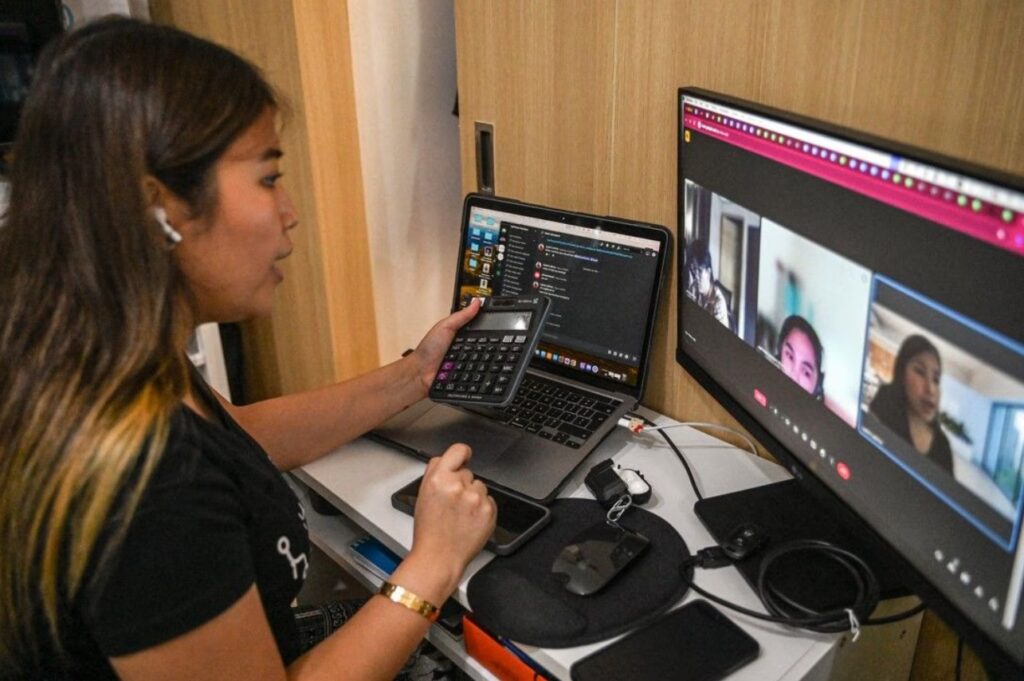The global economy demands agility from small and medium-sized enterprises (SMEs), particularly those in the Philippines seeking to expand their talent pool beyond borders without the burdens of complex legal setups. Employer of Record services have emerged as a vital tool for such businesses, enabling international hiring services while mitigating risks associated with compliance, payroll, and employment laws in foreign jurisdictions. In a nation like the Philippines, where SMEs contribute over 60 percent to employment and GDP, these global employment solutions enable firms to tap into diverse skills from regions such as Southeast Asia, Europe, or North America. However, navigating cross-border employment without an established local entity can expose companies to liabilities, from tax disputes to labor violations.
What Are Employer of Record Services and Their Role in Global Expansion?
Employer of Record services provide a strategic outsourcing model where a third-party provider assumes the legal responsibilities of an employer for workers in foreign jurisdictions, enabling SMEs to hire internationally without establishing local entities. For Philippine businesses, this simplifies remote employee management and ensures compliance with diverse labor regulations. The EOR handles contracts, payroll, taxes, and benefits while the client retains operational control over employees’ daily tasks. This section outlines the core components of EOR services and their significance for global growth.
- Legal Employer Role: The EOR acts as the official employer, managing employment contracts and liabilities, thereby reducing risks such as misclassification or non-compliance penalties, which can exceed PHP 500,000 in equivalent amounts.
- Global Compliance: Ensures adherence to local laws, such as U.S. labor standards or India’s provident fund requirements, critical for Philippine SMEs hiring in multiple regions.
- Rapid Onboarding: Facilitates hiring within weeks, compared to months for local setups, aligning with the Philippines’ digital economy push under the 2023-2028 Development Plan.
- Cost Efficiency: Eliminates the need for in-house legal teams, saving up to 40 percent compared to subsidiary costs, per industry data.
The rise of remote work has driven the adoption of EORs, with global HR outsourcing projected to grow at an annual rate of 8 percent through 2028. For Philippine SMEs, particularly in tech or BPO sectors, EOR services bridge resource gaps, enabling access to global talent. However, navigating multi-jurisdictional contracts requires expertise, underscoring the need for a reliable EOR service provider like Out Task to streamline the process.
Advantages of Employer of Record Services for Small Businesses
Employer of Record services provide Philippine SMEs with a competitive edge by simplifying international hiring processes and reducing administrative burdens. These benefits enable businesses to focus on innovation and growth rather than compliance complexities. By outsourcing global payroll services and legal responsibilities, SMEs can scale efficiently while minimizing risks. Below are the key advantages that make EOR a game-changer for small businesses.
- Risk Mitigation: EORs assume liability for employment disputes, ensuring compliance with local laws and avoiding fines that could cripple SME budgets.
- Cost Savings: Reduces setup costs by up to 40 percent compared to local entities, with annual fees (PHP 50,000–100,000 per employee) significantly lower than the PHP 2 million required for subsidiaries.
- Talent Access: Enables hiring from global markets, boosting diversity and filling critical skill gaps, essential for Philippine firms in the IT and e-commerce sectors.
- Scalability: Supports flexible hiring for project-based or seasonal needs, ideal for volatile industries like retail, with no long-term commitments.
- Employee Benefits: Enhances retention by offering localized perks, such as U.S. 401(k) plans or Philippine 13th-month pay, which improves satisfaction by 25 percent, according to global studies.
These advantages align with the Philippines’ export-driven economy, where SMEs seek cost-effective global staffing solutions. The complexity of managing international compliance, however, highlights the value of partnering with providers like Out Task, which ensures the seamless integration of EOR solutions for startups.
Essential Requirements for Implementing Employer of Record Services
Implementing Employer of Record services requires Philippine SMEs to meet specific legal, financial, and operational prerequisites, a process that can overwhelm under-resourced teams. These requirements ensure compliance and facilitate smooth collaboration with an EOR provider, but they demand significant preparation. Below are the critical elements SMEs must address to leverage global employment solutions effectively.
- Business Justification: A documented plan outlining the need for international hires, such as market expansion, to guide EOR selection and align with SEC regulations.
- Financial Documentation: Audited statements or bank references proving solvency, typically PHP 1 million in working capital, to satisfy provider risk assessments.
- Contractual Agreements: Master service agreements detailing fees (5-15 percent of salaries), indemnity clauses, and termination terms, requiring legal review.
- HR Systems: Cloud-based platforms compliant with the Data Privacy Act for sharing employee data, including job descriptions and performance metrics.
- Compliance Requirements: BIR clearances for foreign income reporting and insurance coverage, such as workers’ compensation, are mandatory in most jurisdictions.
These requirements involve extensive documentation and coordination across departments, often taking weeks and risking errors, such as incomplete visa filings. For Philippine SMEs, managing these while running core operations is daunting, emphasizing the need for expert guidance to avoid delays or penalties. A trusted provider like Out Task can streamline this intricate process.
Navigating the Employer of Record Process: A Detailed Breakdown
The Employer of Record process explained reveals a multi-step workflow that, while efficient with professional support, is complex and time-intensive for SMEs managing it alone. For Philippine businesses, this process involves extensive coordination across jurisdictions, making it a significant undertaking. Below is a breakdown of the key steps involved in implementing EOR services.
- Needs Assessment: Identify roles, locations, and timelines through market research, a time-consuming task requiring precise forecasting to avoid over-hiring.
- Provider Selection: Issue RFPs to evaluate EOR companies based on coverage and fees, involving legal audits and negotiations that can span weeks.
- Contract Signing: Finalize master service agreements, balancing client needs with provider terms, often requiring revisions to avoid future disputes.
- Employee Onboarding: The EOR drafts localized contracts and processes payroll setups, such as Singapore’s CPF or U.S. I-9 forms, which necessitate detailed candidate data from the SME.
- Ongoing Management: Handle monthly payroll, tax filings, and compliance audits, requiring continuous data exchange across time zones.
- Offboarding: Manage exit processes, including final settlements, to ensure compliance with local laws governing leave and severance.
Each step demands precision, and errors, such as misfiled taxes, can trigger penalties. The workload—spanning research, legal reviews, and compliance monitoring—overwhelms SMEs without dedicated HR teams, underscoring the complexity of cross-border employment.
Comparing Employer of Record Services to Other Global Staffing Options
Choosing the right global staffing model is essential for Philippine SMEs. Comparing Employer of Record services to alternatives, such as PEOs or local entities, reveals distinct trade-offs. The decision process, fraught with legal and financial considerations, can be daunting without expertise. Below is a comparison of EOR services against other models, highlighting their suitability for international workforce management.
- EOR vs. PEO: PEOs co-employ domestically but lack EOR’s global reach, making EOR ideal for cross-border employment. PEOs suit local expansion but can’t handle multi-country compliance.
- EOR vs. Local Entity: Establishing a subsidiary offers control but incurs costs of PHP 2-5 million and takes 6-12 months, compared to EOR’s weeks-long onboarding process and lower fees (PHP 50,000-100,000 per employee).
- EOR vs. Staffing Agencies: Agencies provide temporary workers but expose clients to co-employment risks under laws like the U.S. FLSA, while EORs assume full employer status.
- Compliance Assurance: EORs ensure adherence to global standards, such as GDPR, thereby reducing the risk of fines that could exceed SME revenues.
The complexity of evaluating these options—analyzing contracts, forecasting costs, and aligning with Philippine laws, such as foreign investment caps—overwhelms SMEs. Errors in model selection can lead to costly delays or penalties. Out Task simplifies this process with tailored expertise, ensuring compliance and efficiency in Employer of Record outsourcing for seamless global expansion.
Why Employer of Record Services Are Optimal for Philippine SMEs Scaling Globally
Employer of Record services are uniquely suited for Philippine SMEs aiming to scale internationally, aligning with the country’s digital transformation goals and export-oriented policies. These services enable businesses to build global teams without the prohibitive costs of local setups, thereby enhancing competitiveness in sectors such as IT-BPM. Below are the reasons EOR is ideal for SMEs in the Philippines.
- Market Access: Enables hiring from talent-rich regions, such as Eastern Europe, supporting innovation in tech or e-commerce without geographic limitations.
- Cost Efficiency: Saves 30 percent on market entry costs, per industry data, allowing SMEs to redirect funds to product development or marketing.
- Regulatory Alignment: Ensures compliance with ASEAN economic frameworks and double taxation treaties, critical for Philippine exporters.
- Flexibility: Supports scalable hiring for seasonal or project needs, aligning with the Telecommuting Act’s provisions for remote work.
- Employee Retention: Offers localized benefits, such as 13th-month pay or U.S. 401(k) plans, which have been shown to boost retention by 25 percent, according to global studies.
By leveraging EOR, Philippine SMEs achieve faster market penetration and diversity, driving 15 percent annual revenue growth for adopters. Selecting a provider with local expertise, like Out Task, ensures seamless integration with Philippine payroll and compliance systems, making EOR the optimal choice for sustainable global growth.
Final Insights
Employer of Record services empower Philippine SMEs to scale internationally with minimal risk, offering a streamlined approach to global employment solutions. From navigating complex requirements to executing the intricate Employer of Record process, these services address the challenges of cross-border employment while ensuring compliance and cost efficiency. As the Philippines strengthens its position in the global economy, EOR solutions for startups offer a competitive edge, enabling businesses to build diverse and agile teams. By understanding the benefits of using an Employer of Record and comparing it to alternatives like PEOs or local entities, SMEs can make informed decisions to drive growth.
Is Assistance Available?
Yes, Out Task provides expert guidance to streamline your Employer of Record outsourcing needs. Our tailored support ensures compliance and efficiency, empowering your SME to scale globally with confidence. Reach out today to schedule an initial consultation with one of our experts.
- Contact Us Here
- Fill Out the Form Below
- Send an email to: info@outtask.ph



